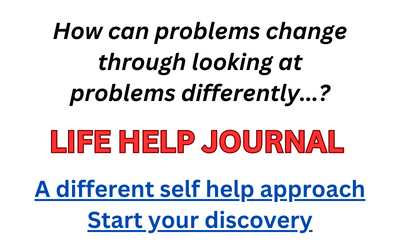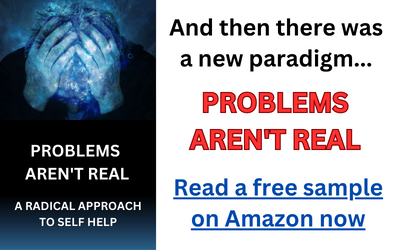Cognitive therapy is completely valid in a very fundamental way: emotional dysfunctions like depression and anxiety are responses to cognitive activity. To put this another way, much emotional dysfunction is the result of thinking.
Most of us don’t even consider the possibility that depression, anxiety, etc., are caused by thinking. It is however a very basic truth, as emotional responses do not occur without there first being interpretation (through thinking).
A label must be attached to some stimulus before an emotional reaction happens.
In the case of depression this label states, essentially, this is bad. In the case of anxiety, the label essentially states this is dangerous. No label interpretation through thinking, no emotional response of any kind.
The person who doubts this can easily put it to the test by simply observing their emotional patterns. Listen — listen for the inner chatter that occurs before anger, depression, anxiety, whatever else, rises up. You may have to be very alert and aware as the lapse between chatter and emotion can last less than seconds; but the inner chatter will certainly be there.
So does this mean cognitive therapy holds the prescription for ending emotional dysfunction? I believe not. As I see it cognitive therapy advocates a considerable mistake in the managing of emotional dysfunction: trying to reason with the ego.
The inner talk that labels stimulus before an emotion appears is in fact mind chatter, and even more specifically, it is the voice of the ego. What cognitive therapy essentially promotes is talking back to this voice, and substituting a reasoned response for what it has to say. This back and forth is typically accomplished through writing — the unreasonable voice is written down, and then a reasonable response.
This approach of responding to one’s negative thinking may seem quite logical but it ultimately proves to be an endless loop of talk. For every response a person can make to the ego, the ego can come up with an additional ten counter things to say. It’s a case of the dog chasing its tail.
And then there’s the prospect of taking the time and effort to write thoughts and responses out. Is an approach like this consistently do-able in the real world?
The regular practice of cognitive therapy ostensibly reduces negative ego chatter. Perhaps this is true, after so much practice time — perhaps — but if a quiet mind is the aim, and a quiet mind is in fact a proper response for emotional dysfunction, then there is a far quicker and more effective way to go about it.
Instead of responding to mind chatter simply observe it. Don’t go back and forth with it, don’t attempt to reason, let this mind chatter go on as much as it likes but have the presence of mind to listen to it versus unconsciously reacting to it in some way.
Rather than engaging mind chatter as cognitive therapy does, conscious awareness transmutes the chatter into a peaceful energy, usually very quickly.
None of this is to say that cognitive therapy has no value or benefit or should not be used. The opinion from here however is that there’s an easier and more effective way to go about it.
Don’t talk back to the ego — observe it instead.

